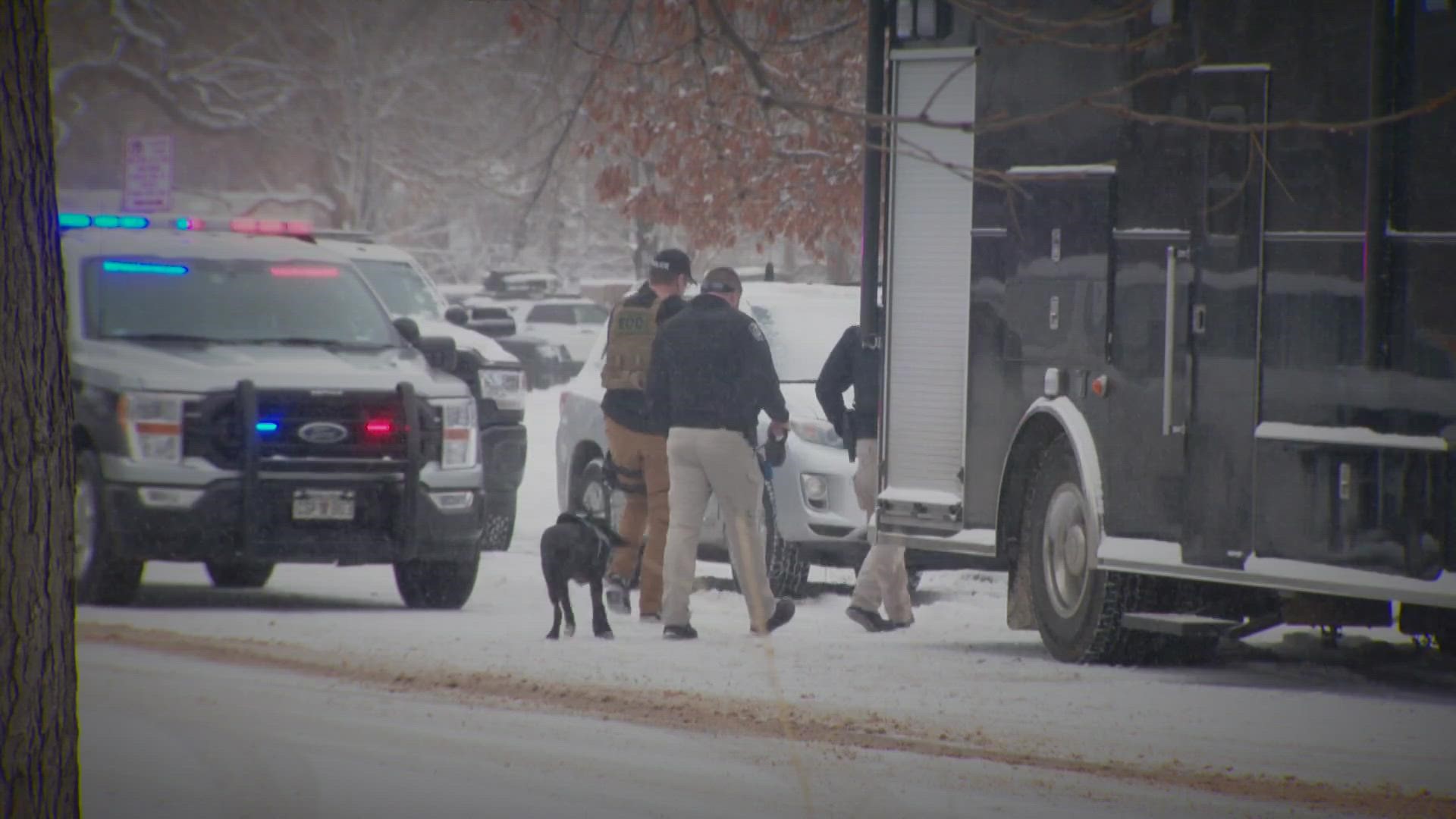DENVER — Audio files obtained by 9NEWS reveal what a hoax caller said over the phone that prompted extreme anxiety for students, parents and police at more than a dozen schools throughout Colorado on Wednesday.
9NEWS is sharing the calls so people can understand why first responders reacted as if the threat of an active shooter was real.
Through a records request, 9NEWS obtained two of the swatting calls, made to Durango and Cañon City.
The audio files reveal the caller in both cases made nearly identical claims, saying he had an AR-15, pipe bombs and was about to start shooting students. The sound of gunfire was used in the calls.
Content Warning: These calls contain audio of someone falsely threatening to shoot students and the sound of gunfire.
“More likely, this latest rash of swatting calls in the U.S. did not emanate from inside the United States,” James Turgal, who worked for the FBI for more than 20 years, said.
Turgal helped establish the FBI’s cybercrimes task force in the early 2000s and worked on numerous cybercrimes, including swatting. He now works for information security company Optiv.
Turgal said the caller's digital footprints are likely entangled in a web of servers around the world, and investigators will have to connect thousands of dots, starting with call data in Colorado.
“It's tracking those millions of IP addresses. The Bureau has the techniques and has the skill set of the cyber agents that are there,” Turgal said.
At this point, the caller’s motivation is unclear, Turgal said.
“Are they just trying to create chaos? Are they just trying to terrorize people?” Turgal questioned, while saying the caller may have been trying to test the physical and emotional response of law enforcement.
Turgal also suspected the swatter was using automated technology to make multiple calls in succession.
“That's why swatting nowadays is so much more difficult to investigate. It is harder because the number of jump points that a particular threat actor can use if they're somewhere else in the world is almost infinite,” Turgal said.
While catching swatters can be extremely difficult, investigators have had some success with arrests.
In December, a 20-year-old man from Charlotte, North Carolina was caught after federal investigators say he swatted police departments and schools in multiple states.
The swatting behavior has been around for years, since the dawn of the internet, and has also led to deaths as police respond to situations with guns drawn expecting a shootout.
Estes Park Police revealed in a Facebook post that one of their officers discharged a gun inside an elementary school during a response to a swatting incident on Wednesday. The department called the incident an "accident," and said nobody was hurt.
If you have any information on this story or would like to send a news tip, you can contact jeremy@9news.com.
SUGGESTED VIDEOS: Latest from 9NEWS

